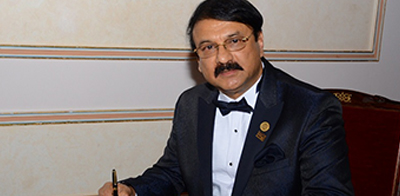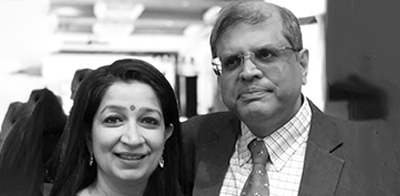Nobel laureate Professor Amartya Sen has devoted his entire life and career to advancing the economic well-being of the impoverished. The globally celebrated intellectual has developed methodologies for assessing poverty and has tackled issues surrounding individual rights, democratic decision-making, and access to crucial information, thereby encouraging scholars to prioritise fundamental welfare concerns. When Sen was awarded the Nobel Prize for Economics in 1998, he put that money to good use by setting up a trust to celebrate his roots and uplift the lives of the disadvantaged communities in India and Bangladesh.
When the Nobel award came my way, it also gave me an opportunity to do something immediate and practical about my old obsessions, including literacy, basic health care and gender equity, aimed specifically at India and Bangladesh. The Pratichi Trust, which I have set up with the help of some of the prize money, is of course a small effort compared with the magnitude of these problems.
Amartya Sen writes on Pratichi Trust’s website
Pratichi, a not-for-profit non-government organisation (NGO) has promoted inclusive development in India, focusing on primary education, elementary health-care, people’s democratic rights and gender equity.
Facilitating development and social change
Under the guidance of its Nobel laureate founder, over its two-and-a-half-decade journey, the trust has strived to uphold and enact Sen’s distinctive approach to facilitating development and social change through research, community engagement, advocacy, empathy, and direct action.
Pratichi has also established forums for debate, discussion, exchange of ideas, and action, leveraging its long-standing association with educators, healthcare professionals, Integrated Child Development Services (ICDS) personnel, community workers, environmental advocates, students, local associations, and individuals committed to facilitating constructive change.

Amartya Sen during a field tour of Pratichi Trust’s work
The structural framework of Pratichi includes three main components – the parent organization, based in Delhi, known as the Pratichi (India) Trust; the Pratichi Institute in Kolkata, which integrates the Santiniketan Unit and the Himachal Unit, with plans to incorporate the Centre for Marginality Studies and the Centre for Village Studies soon; and the Pratichi School located in the Jagatsinghpur district of Odisha.
Redefining economics and human rights
Born in Santiniketan, West Bengal, India, on November 3, 1933, Professor Amartya Sen experienced the harsh realities of poverty, famine, and inequality during his upbringing in Dhaka and Santiniketan. He graduated from Presidency College, Kolkata, and earned his PhD from Trinity College, Cambridge, in 1959. Throughout his career, he has taught economics at various institutions in India and the UK – Jadavpur University, Delhi University, the London School of Economics, the University of London and the University of Oxford. Professor Sen also taught at the Harvard University, where he is currently the Thomas W. Lamont University Professor. He also served as the Master of Trinity College, Cambridge, from 1998 to 2004. Following the Nobel Prize in 1998, he was conferred with a Bharat Ratna in 1999. In 2020, he received the prestigious Peace Prize of the German Book Trade from the German Publishers and Booksellers Association.
Being poor does not mean living below an imaginary poverty line, such as an income of two dollars a day or less. It means having an income level that does not allow an individual to cover certain basic necessities, taking into account the circumstances and social requirements of the environment.
– Amartya Sen
Professor Sen’s work has revolved around evaluating market outcomes and government policies to enhance human well-being. His research has precipitated significant shifts in economic and development paradigms, departing from conventional metrics such as income and growth to emphasize individual entitlements, capabilities, freedoms and rights. He has consistently championed political freedom, highlighting the indispensable role of human rights in fostering effective socio-economic progress, and challenging the notion that development should supersede civil and political rights. Due to his contributions towards social upliftment, he is often referred as the ‘conscience of his profession.’




